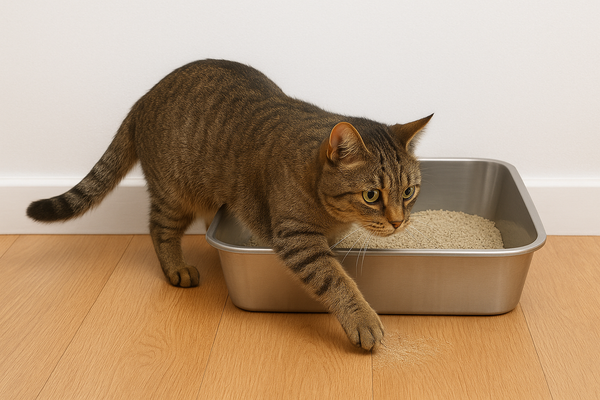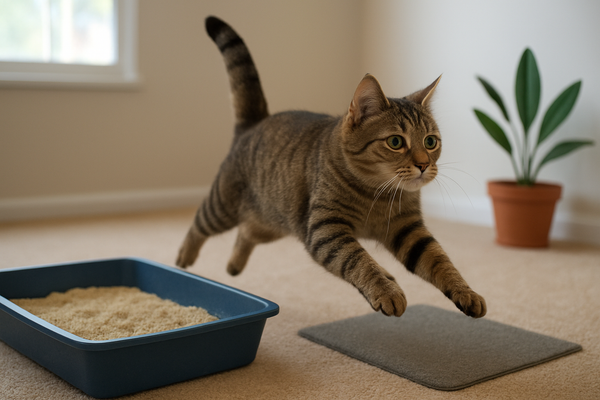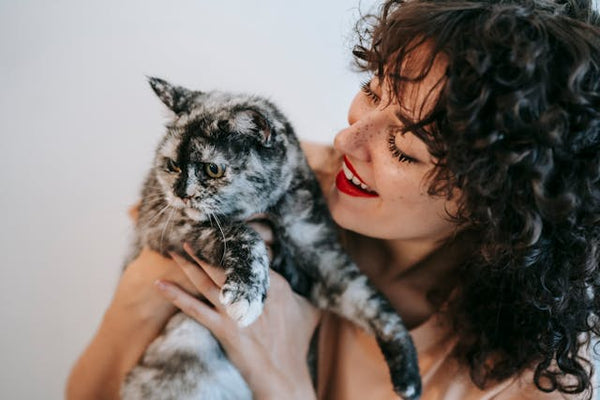
Cats are fascinating creatures, known for their independent personalities and unique ways of communicating. One of the most recognizable aspects of a cat's behavior is its meow. This vocalization serves various purposes, from demanding attention to expressing discomfort. However, many cat owners may wonder: can cats lose their meow? In this blog, we will delve into the reasons behind meowing, potential causes for a cat losing its meow, and what owners can do to help.
The Importance of Meowing
Before we explore the reasons a cat might lose its meow, it’s essential to understand the significance of this vocalization. Cats primarily communicate with their human companions through meows, as they tend to reserve their more complex vocalizations for inter-cat communication. While adult cats generally do not meow at each other as frequently as they do at humans, they have learned that meowing can effectively convey their needs.
Types of Meows
Cats use various types of meows to express different emotions or needs:
-
Demanding Meow: This is a loud and insistent call that usually means your cat wants something, like food or attention.
-
Greeting Meow: A short and friendly meow that often occurs when a cat sees its owner after a period of absence.
-
Pained Meow: A high-pitched or drawn-out meow can indicate that a cat is in distress or experiencing pain.
-
Discontent Meow: A series of short, sharp meows may signal that a cat is unhappy or annoyed.
Understanding these nuances helps owners respond appropriately to their cats’ needs. However, what happens when a cat suddenly stops meowing or loses its ability to vocalize?
Reasons a Cat Might Lose Its Meow
Several factors could lead to a cat losing its meow or experiencing changes in its vocalization. These reasons can range from health issues to behavioral changes.
1. Health Issues
One of the most common reasons for a cat to lose its meow is an underlying health problem. Various medical conditions can impact a cat's ability to vocalize.
Laryngeal Issues
The larynx, or voice box, plays a crucial role in producing sounds. Infections, tumors, or trauma to this area can lead to laryngitis, causing a cat to lose its voice. If a cat seems to have difficulty meowing or produces a raspy sound, it’s essential to consult a veterinarian.
Respiratory Infections
Cats are susceptible to respiratory infections, which can cause symptoms like coughing, sneezing, and nasal congestion. These infections can also lead to a change in vocalization. If your cat appears to have a cold, a visit to the vet is recommended.
Dental Problems
Dental issues, such as periodontal disease or oral tumors, can cause pain and discomfort, leading to reduced vocalization. Cats with severe dental pain may avoid meowing altogether.
Neurological Issues
Certain neurological disorders can affect a cat's ability to control its vocal cords, resulting in changes in vocalization. If you notice other unusual behaviors, such as coordination issues or changes in behavior, seek veterinary advice promptly.
2. Stress and Anxiety
Cats are creatures of habit and can become stressed or anxious due to changes in their environment. This stress can manifest in various ways, including changes in vocalization.
Environmental Changes
Moving to a new home, the introduction of a new pet, or even changes in the household routine can lead to stress. A stressed cat may withdraw, leading to less vocalization. If your cat seems unusually quiet, consider any recent changes that might have triggered this behavior.
Noise Phobia
Some cats are sensitive to loud noises, such as thunderstorms or fireworks. A cat that has experienced a traumatic event related to noise may become quieter as a coping mechanism.
3. Aging
As cats age, their behavior can change. Senior cats may become less vocal for several reasons:
Decreased Energy
Older cats may have lower energy levels and become less interactive, resulting in reduced vocalization.
Cognitive Dysfunction
Similar to humans, cats can experience cognitive decline as they age. This decline can lead to changes in behavior, including decreased vocalization. If you suspect cognitive dysfunction, consult your vet for guidance on management options.
4. Behavioral Changes
Sometimes, a change in a cat's vocalization may be linked to behavioral issues rather than health problems.
Attention-Seeking Behavior
Some cats may meow less if they learn that meowing leads to negative attention or if they are rewarded for being quiet. For instance, if a cat is scolded for meowing excessively, it may reduce its vocalization over time.
Socialization Changes
Cats that are not well-socialized may not vocalize as much, particularly if they are shy or anxious around people. Increasing your cat's comfort level with you and its environment may encourage more vocalization.
5. Temporary Changes
In some cases, a cat may lose its meow temporarily due to factors that resolve quickly.
Illness
A mild illness, such as a cold, may lead to temporary changes in vocalization. Once the illness resolves, the cat may return to its normal vocal patterns.
Stressful Situations
After a particularly stressful event, such as a trip to the vet, a cat may be quieter than usual. With time and reassurance, it may regain its vocalization.
What to Do if Your Cat Loses Its Meow
If you notice that your cat has lost its meow or significantly changed its vocalization, here are some steps to take:
1. Observe Behavior
Before jumping to conclusions, take note of any other behavioral changes. Is your cat eating and drinking normally? Is it using the litter box? Observing your cat's overall behavior can provide important clues about its health.
2. Visit the Veterinarian
If your cat’s loss of vocalization lasts more than a day or two, or if you notice other concerning symptoms (such as lethargy, changes in appetite, or signs of pain), it’s essential to take your cat to the veterinarian for a thorough examination.
3. Provide a Calm Environment
If your cat is stressed, creating a calm and stable environment can help. Ensure your cat has a quiet space to retreat to and try to minimize loud noises or disruptions.
4. Engage in Play
Encourage vocalization through interactive play. Use toys to engage your cat and stimulate its interest. Sometimes, play can elicit meows, especially if your cat enjoys the interaction.
5. Monitor Changes
Keep track of any changes in your cat’s behavior or health. This information can be invaluable for your veterinarian in diagnosing any potential issues.
Conclusion
In summary, while it is possible for cats to lose their meow due to a variety of health, behavioral, or environmental factors, it’s important for cat owners to pay attention to changes in their feline friends. Understanding the reasons behind these changes can help you respond effectively, ensuring your cat remains happy and healthy.
If your cat does lose its meow, don’t panic. Consult your veterinarian and observe your cat's overall behavior to determine the best course of action. By being attentive and proactive, you can help your cat regain its voice and continue to express its unique personality.



